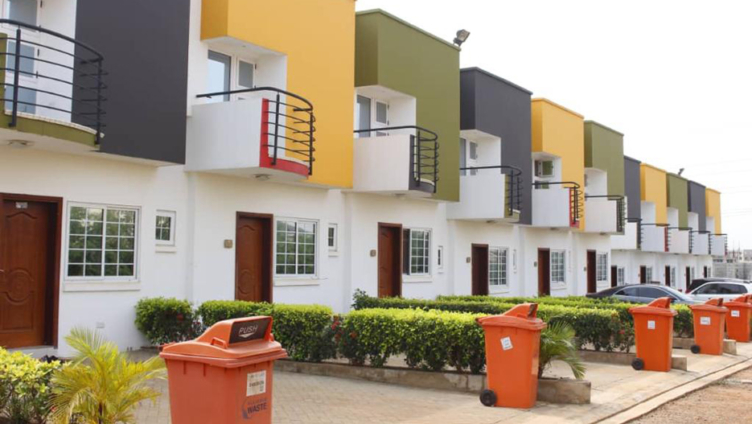Buying a home could be a daunting and anxious enterprise, especially for first-time buyers. The intricate processes and steps, the anxiety about making a mistake that could be very expensive weigh on the mind, making the thought process and decision making somewhat tedious. From the mode of payment to who to finance the purchase – in the case of a loan or a mortgage – the burden of the journey becomes heavier without finding the right help.
Within the multiplicity of options available for financing a home purchase, navigating through them to find the right one that fits your pocket and income could be difficult without some guidance from experts. In this article, we will share some tips, particularly for people within the healthcare sector in Ghana, to make life easier for them when buying their first home.
The first thing you need to do is to conduct an audit of your finances to determine whether or not you are ready to buy a home. Buying a home means you have to be ready for both the actual purchase and the recurrent expenditure that comes with the maintenance of a home. Doing this will help you know your financial status and also let you know whether to proceed or defer to a later date. If you will need to finance your home purchase with a bank loan, you have to make sure that you have good credit and a history of retiring your loans on time.
Secondly, you have to decide on the type of home that will best suit your needs. Size of family, location and topography of land, finances and other such allied factors determine the make and type of building one should buy. The various types and makes of houses – detached, semi-detached, duplex, townhouse or large family house – all have their advantages and disadvantages depending on what you want to achieve with your home purchase. While it is good to retain some flexibility in this list, you are making perhaps the biggest purchase of your life; you deserve to have that purchase fit both your needs and wants as closely as possible. Your list should include basic desires, like neighborhood and size, all the way down to smaller details like bathroom and a kitchen layout. Whatever you decide, you need to make sure that the building meets and serves your needs of a home.
Also, if you want to finance the purchase with a mortgage, it is critical to know how much mortgage you qualify for. Make sure to get preapproved for a loan before placing an offer on a home. In many instances, sellers will not even entertain an offer that’s not accompanied by a mortgage preapproval. In addition, many realtors will not spend time with clients who haven’t clarified how much they can afford to spend. Begin by researching lenders and comparing interest rates and fees. Then, submit your application for a mortgage and include the supporting documentation requested by your lender to verify your income and debt.
The other critical factor you need to consider relative to a mortgage is your savings. Even if you qualify for a sizeable mortgage, there will be a considerable upfront cash outlay that includes your down payment (3.5%-20% of the purchase price) and closing costs. If you have one year to three years to realize your goal, then a certificate of deposit may be a viable option. It is not going to make you rich, but you aren’t going to lose money either. If the home purchase happens in six months to a year, then you are going to want to keep the money liquid. A high-yield savings account could be the best option.
If still in doubt, as stated earlier, it is always good to talk to experts for clarity and direction. In Ghana, Stanbic Bank has a package specifically made for healthcare professionals. The tailor-made product, the ‘Nurse and Midwives Care’, makes it easier for nurses and midwives to access loan facilities, particularly mortgage loans in aid of their accommodation.
The offer includes a wide range of services including home loans for the outright purchase of turnkey properties for accommodation and developer constructions loans for the purchase of residential properties from developers where the property is still under construction. Others include refinancing, which enables nurses and midwives to arrange new financing terms such as currency, amount, and term of existing loans. The product also offers customers equity release that enables customers to unlock values in existing property by taking loans and using the money released for a variety of personal needs.
Latest Stories
-
NPP Abanga breaks ranks to shield NDC twin brother in ‘galamsey’ accusations
2 hours -
Saminu Abdul Rasheed smashes national record again with 9.84s sprint in Georgia
3 hours -
Blekusu Coastal project: We’re reclaiming our coastlines – Housing Minister
5 hours -
Pricey plantains push Ghana’s market sellers to diversify
5 hours -
Full list: NPP delegates approve 54 reform motions, reject proposals on youth age, election supervision
6 hours -
WAFCON 2024: Cynthia made it easy – Chantelle hails goalkeeper after penalty saves
6 hours -
Cyber Security Authority boss suspended over use of military bodyguard
6 hours -
WAFCON 2024: I want to make history – Grace Asantewaa dreams of lifting the trophy
6 hours -
Afenyo-Markin accuses NDC of rebranding and claiming credit for NPP projects
6 hours -
2024 WAFCON: Grace Asantewa shines as Black Queens reach semis
6 hours -
WAFCON 2024: Ghana beat Algeria 4-2 on penalties to book semi-final spot for the first time since 2016
7 hours -
NPP Delegates reject motion to shift polling station selection oversight to regional committees
7 hours -
2024 WAFCON: Black Queens set up semifinal clash with hosts Morocco
7 hours -
Dr. Amuasi champions healthy sustainable socio-ecological systems thinking in Lancet One Health Commission Report
7 hours -
Without unity, we’re just individuals with ambition – Afenyo-Markin
7 hours

